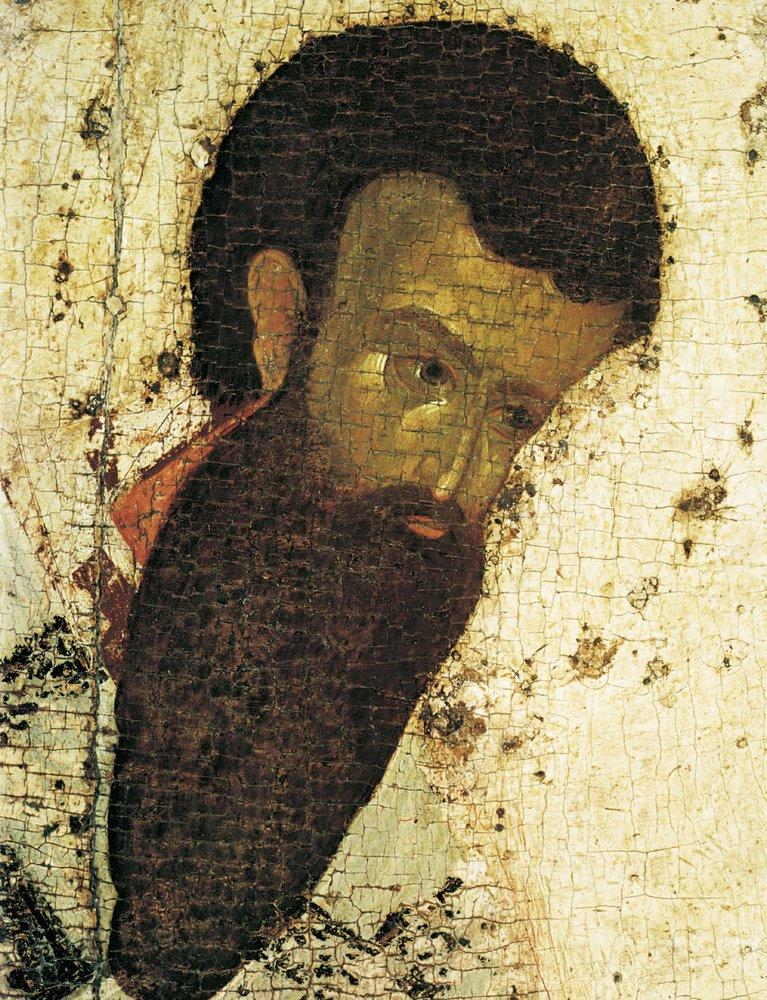
Saint Basil the Great was one of the cornestones upon which the Orthodox Christian faith was based on and he belongs to the Great Fathers of the Orthodox Church. He was born in 330 A.D in Neocaesarea of Pontos located in Greek Asia Minor (now modern Turkey). He came from a wealthy and christian family with many children. Saint Basil had 8 siblings, 4 of which became Saints of our Church (Saint Gregory of Nissa, St. Naucratius the wondermaker, Saint Makrina and Saint Peter, bishop of Sevasteia). His educational background was rich and pluralistic. He studied in Caesarea , Constantinople and Athens . It was particularly in Athens where he broadened his knowledge in geometry, astronomy, philosophy, medicine, rhetoric and grammar. Among his classmates there were Saint Gregory the theologian and Julian, later known as the “apostate”
Saint Basil’s ascetic way of living was incomparable. Once he came back to his homeland Caesarea, he became a teacher in Rhetoric like his father. After his brother’s death Naucratius, Saint Basil decided to get baptized and to lead a spiritual life dedicated to God. He donated all his property to the poor and travelled all over the most popular monastic centers of his times. He visited Egypt, Syria, Mesopotamia and Palestine in order to gain insight into the christian spiritual life from the Fathers of the dessert. He suffered from a rare illness which caused him a low grade fever quite often. However, Saint Basil gave glory to God and never stopped his spiritual life.
Among his great achievements, we should mention his active support to the poor, his unwearying care for the protection and upbringing of the orphans and his consideration for the elders. Under this framework, Saint Basil the Great founded the first social welfare center of his times, the so called: Vaseliada, named after Basil’s name in Greek (Vaselios). Vaseliada was consisted of an orphanage, a nursing home, and school. Saint Basil looked after the people in need personally along with a group of volunteers who had eagerly been engaged into this unparalleled service. It is said that he even used to embrace the lepers without fear, showing his caring to other people for the sake and love of Christ.
Another great field of Saint Basil’s heritage is his contribution to Orthodox theology. Firstly, he wrote the regulations of the monastic life which are followed until our era in Eastern Orthodox church and define the organization of monasteries. Secondly and most importantly he defended and protected the Church from the great heresy of his times, Arianism, according to which Christ was not a God. He fought actively and was determined to give his own life defending the Orthodox faith against the heretic emperor Wallens. Wallens wanted to make Saint Basil, who had become bishop of Caesaria in Cappadocia, change his faith and adopt Arianism, like other bishops had done at that time. Saint Basil remained loyal to the teachings of the Holy Apostles and was a beacon of his time safeguarding the true faith in the Holy Trinity. He pronounced the divine nature of Christ, identical to the Father and the Holy Spirit. He motivated Saint Gregory the Theologian to travel to Constantinople and fight Arianism. Saint Gregory managed to bring the church back to the orthodox teachings and denounce Arianism . The contribution of these Great Fathers to the Church remains astounding and valuable to all generations.
It is said that in Saint Basil’s funeral, people from other religions and confessions attended to pay tribute to this great man. We shall always honor him and ask for his prayers to God.